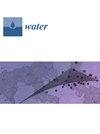Drought Quantification in Africa Using Remote Sensing, Gaussian Kernel, and Machine Learning
IF 3
3区 环境科学与生态学
Q2 ENVIRONMENTAL SCIENCES
引用次数: 0
Abstract
Effective drought management requires precise measurement, but this is challenging due to the variety of drought indices and indicators, each with unique methods and specific uses, and limited ground data availability. This study utilizes remote sensing data from 2001 to 2020 to compute drought indices categorized as meteorological, agricultural, and hydrological. A Gaussian kernel convolves these indices into a denoised, multi-band composite image. Further refinement with a Gaussian kernel enhances a single drought index from each category: Reconnaissance Drought Index (RDI), Soil Moisture Agricultural Drought Index (SMADI), and Streamflow Drought Index (SDI). The enhanced index, encompassing all bands, serves as a predictor for classification and regression tree (CART), support vector machine (SVM), and random forest (RF) machine learning models, further improving the three indices. CART demonstrated the highest accuracy and error minimization across all drought categories, with root mean square error (RMSE) and mean absolute error (MAE) values between 0 and 0.4. RF ranked second, while SVM, though less reliable, achieved values below 0.7. The results show persistent drought in the Sahel, North Africa, and southwestern Africa, with meteorological drought affecting 30% of Africa, agricultural drought affecting 22%, and hydrological drought affecting 21%.利用遥感、高斯核和机器学习量化非洲旱情
有效的干旱管理需要精确的测量,但由于干旱指数和指标种类繁多,每种指数和指标都有独特的方法和特定用途,而且地面数据可用性有限,因此测量难度很大。本研究利用 2001 年至 2020 年的遥感数据计算干旱指数,分为气象、农业和水文指数。高斯核将这些指数卷积到去噪的多波段合成图像中。使用高斯核进一步细化,增强每个类别的单一干旱指数:勘测干旱指数 (RDI)、土壤水分农业干旱指数 (SMADI) 和溪流干旱指数 (SDI)。包含所有波段的增强指数可作为分类和回归树 (CART)、支持向量机 (SVM) 和随机森林 (RF) 机器学习模型的预测因子,从而进一步改进这三个指数。在所有干旱类别中,CART 的准确度最高,误差最小,均方根误差 (RMSE) 和平均绝对误差 (MAE) 值介于 0 和 0.4 之间。RF 排名第二,而 SVM 虽然不太可靠,但其值也低于 0.7。结果显示,萨赫勒、北非和非洲西南部地区持续干旱,其中气象干旱影响了非洲 30%的地区,农业干旱影响了 22%的地区,水文干旱影响了 21%的地区。
本文章由计算机程序翻译,如有差异,请以英文原文为准。
求助全文
约1分钟内获得全文
求助全文
来源期刊

Water
WATER RESOURCES-
CiteScore
5.80
自引率
14.70%
发文量
3491
审稿时长
19.85 days
期刊介绍:
Water (ISSN 2073-4441) is an international and cross-disciplinary scholarly journal covering all aspects of water including water science and technology, and the hydrology, ecology and management of water resources. It publishes regular research papers, critical reviews and short communications, and there is no restriction on the length of the papers. Our aim is to encourage scientists to publish their experimental and theoretical research in as much detail as possible. Full experimental and/or methodical details must be provided for research articles. Computed data or files regarding the full details of the experimental procedure, if unable to be published in a normal way, can be deposited as supplementary material.
 求助内容:
求助内容: 应助结果提醒方式:
应助结果提醒方式:


